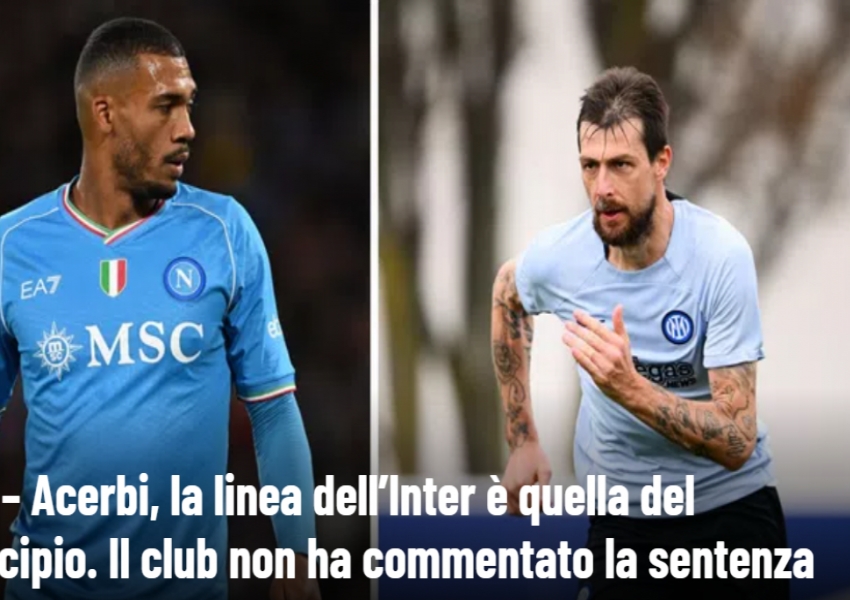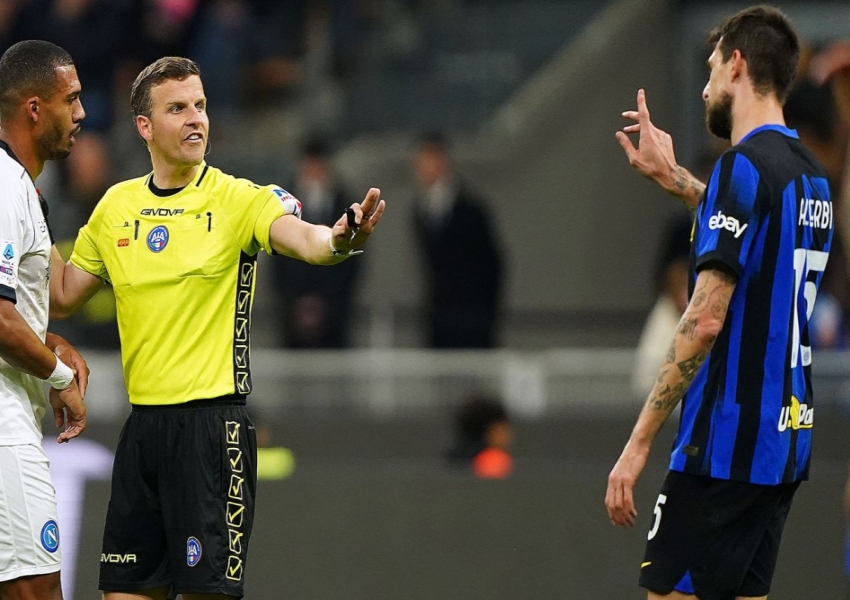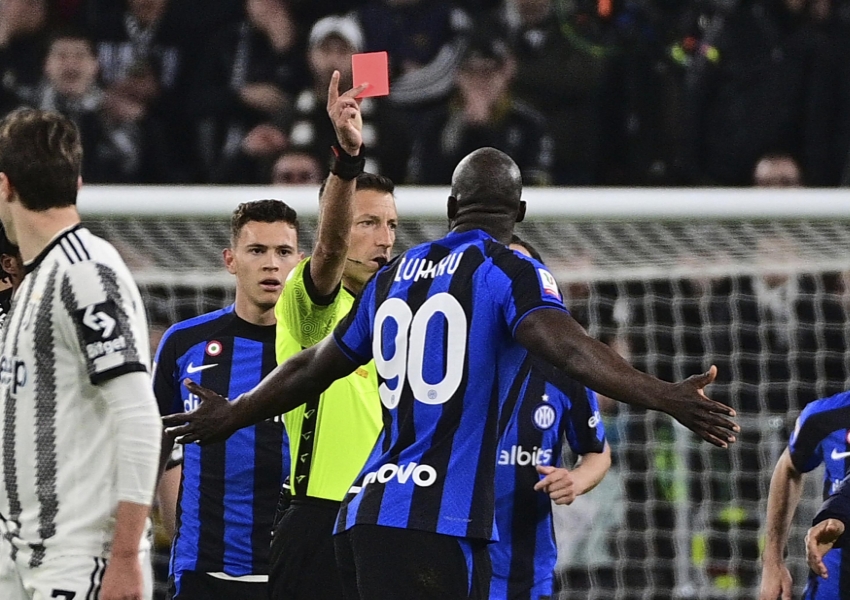Inter Milan's Silent Response to Acerbi Controversy: Was It the Right Move?
Inter Milan's Francesco Acerbi was recently cleared of accusations of racism, a decision that has sparked considerable debate. One of the key talking points is Inter Milan's consistent silence throughout the incident. Contrary to media expectations, Inter neither condemned Acerbi for moral wrongdoing nor publicly defended him. This raises the question: Was Inter Milan's approach a masterstroke? What were the reasons behind their silence?

The Acerbi Incident: A Timeline
To understand Inter's strategy, it’s essential to recap the Acerbi incident. The controversy began with allegations of racial abuse against Acerbi. However, the case lacked substantial evidence—no witnesses, no audio-visual proof, just a one-sided accusation. During the hearing, Acerbi denied the allegations, explaining that his comments were misunderstood and had no racial undertones. He claimed he merely used typical trash talk on the field, saying things like "I'll crush you," which, while aggressive, is common in competitive sports and not grounds for severe punishment.

Inter Milan maintained silence throughout the scandal. At the initial stages, the club communicated with Acerbi, who assured them he had not engaged in racist behavior. Following this, Inter took no further public action. While various factions in Italy subjected Acerbi to moral scrutiny, Inter refrained from making statements. Even when rumors surfaced that Inter might terminate Acerbi’s contract, the club remained silent. When the sports tribunal eventually declared Acerbi innocent, Inter still chose not to comment, even amid widespread public debate.

The Importance of Silence
Comparisons were drawn between the Acerbi incident and last season's controversy involving Romelu Lukaku. Critics accused Inter of a double standard, arguing that the club had defended Lukaku but remained silent on Acerbi. However, the two situations are fundamentally different.
In Lukaku's case, there was clear evidence: fans racially abused him during a match, as documented in numerous audio-visual recordings. Lukaku's response—a salute and a shushing gesture—was not problematic in itself, but the Italian authorities’ failure to control the fans led to an unfair punishment for Lukaku. This case had a clear cause and effect, with undeniable evidence of racial abuse.
Acerbi's situation was different. Without any concrete evidence, just a singular accusation, the case against him was weak. Despite the lack of evidence, the media and public opinion still clamored for a severe punishment. This highlights a broader issue: the influence of political correctness, which can sometimes result in a "guilty until proven innocent" mentality.
The Context of Political Correctness
The Acerbi incident occurred during a particularly sensitive period in Italy, where actions driven by political correctness had led to significant national consequences. For example, during the Russia-Ukraine conflict, Western countries, including Italy, banned numerous voices on social media platforms like Twitter and Instagram for not adhering to the politically correct narrative. Italian journalists who attempted to report objectively faced backlash and censorship. This suppression of dissenting voices, only for the same narratives to be later discussed openly by Western leaders, left many Italians questioning the true value of political correctness.
Similarly, the Red Sea navigation crisis had severe economic repercussions for Italy. Heavily dependent on the Suez Canal for food imports, Italy faced massive losses when the crisis disrupted shipping routes. Although Italy had minimal direct involvement in the conflict, political pressures forced it into the fray, contributing money, resources, and potentially lives. These events have led to growing public discontent with the enforced adherence to political correctness.
Inter Milan’s Calculated Silence
Against this backdrop, Inter Milan’s decision to remain silent during the Acerbi controversy appears strategically sound. Italian media, particularly those with vested interests, expected Inter to take a definitive stance. They anticipated that any action or statement from the club would be subject to criticism:
- If Inter publicly defended Acerbi, it risked damaging its reputation as a staunch advocate against racism.
- If the club prematurely punished or terminated Acerbi’s contract before the tribunal’s decision, it would suffer both competitively and reputationally without necessarily improving its public standing.
- Even after Acerbi was declared innocent, any triumphant statement from Inter could be perceived as gloating, potentially sparking further public backlash.
Inter avoided these pitfalls by maintaining silence. This approach prevented the club from becoming embroiled in a highly politicized and polarizing debate, thus protecting its interests and allowing the legal process to run its course. The club’s restraint demonstrated a commitment to due process and a refusal to be swayed by external pressures.
Reactions and Reflections
The public and media reactions to Inter's silence varied. Some viewed it as a lack of support for Acerbi, while others saw it as a wise decision to avoid unnecessary controversy. Sky Sports summed it up well: "Inter Milan, known for its active stance against racism, chose silence in the Acerbi case after careful consideration."
Inter's silence can also be interpreted as a statement in itself. By not commenting, the club implicitly supported the principles of due process and the presumption of innocence until proven guilty. This stance contrasts sharply with the often reactionary nature of public and media discourse, which can be quick to judge without concrete evidence.
The Broader Implications
The Acerbi case highlights the complex interplay between sports, media, and politics. In an era where public opinion can be heavily influenced by media narratives and political correctness, institutions like football clubs must navigate these waters carefully. Inter Milan's silence suggests a strategic approach to these challenges, prioritizing the integrity of the judicial process over the court of public opinion.
Furthermore, the incident underscores the broader societal implications of political correctness. While the intention behind political correctness is to promote equality and prevent discrimination, its application can sometimes lead to unintended consequences, such as unjust accusations or censorship of dissenting voices. The Acerbi case serves as a reminder of the importance of balanced, evidence-based approaches to justice and public discourse.
Conclusion
Inter Milan's handling of the Acerbi controversy demonstrates a measured, strategic response to a highly sensitive issue. By choosing silence, the club avoided the pitfalls of reactionary public statements and maintained its focus on due process. This approach not only protected the club’s interests but also highlighted the broader societal challenges associated with political correctness and public opinion.
The club’s restraint during this period reflects a deep understanding of the complexities involved in such controversies. It shows that sometimes, silence can be the most powerful response, allowing the facts to speak for themselves and justice to take its course. As the dust settles on the Acerbi case, Inter Milan's approach may well be seen as a benchmark for how sports institutions can navigate the tricky terrain of media scrutiny and political pressures.
Copyright Statement:
Author: mrfootballer
Source: Mrfootballer
The copyright of this article belongs to the author. Reproduction is not allowed without permission.
Recommended Blog
- Worst on the Field! Inter Milan's Star Forward Trails Only Ronaldo on Embarrassing Euro Stats: Major Weakness Limits His Potential
- Euro 2024 Round of 16: Did the Netherlands Accurately Predict Their Situation? Turkey's Strategic Group Stage Maneuvers
- Major Boost in Inter Milan's Stability: Internal Summit May Be Advanced as Coach's Demands Shape Three Key Season-End Highlights
- No Tickets! Inter Milan's Derby Title Dream Becomes AC Milan's Windfall, Increasing Safety Concerns
- Inter Milan Equals 20-Year Record, Celebrating Long-Awaited Triumph After Eight Years of Consistency
- Inter Milan's Biggest Threat Among European Giants: The Inevitable Overhaul of the "13 Veterans"
- Inter Milan's 5-Year, €90M Deal Awaits Zhang Kangyang's Green Light: Why the Delay?
- The Storm Won't Calm: Lautaro and Acerbi Present New Challenges for Inter Milan
- Inter Milan Lays Foundations for the Future: Long-term Strategies and Rising Stars
- Can Inter Milan Achieve Year-End Profitability? Three Key Variables and the Potential Windfall from a Second Star
Hot Blog
- Champions League Quarterfinals Set: Arsenal Crush PSV 9-3, Villa Dominate Brugge 6-1! Real Madrid vs. Arsenal Confirmed
- Champions League Drama: Rare Penalty Violation! VAR’s Eagle Eye Turns 60,000 Cheers to Silence
- Vinícius Jr. Misses Crucial Penalty as Atlético Fans Erupt – Bellingham Offers Consolation in Madrid Derby Thriller
- Champions League Quarterfinals Set to Take Shape – Arsenal and Villa Poised to Advance, Real Madrid in Strong Position, Dortmund Facing an Uphill Battle
- Real Madrid Survive Atlético Thriller: Win 4-2 on Penalties to Set Up Quarterfinal Clash with Arsenal
- 1-4! 0-4! A Dark 24 Hours for Chinese Football – Shanghai’s Giants Humiliated and Eliminated from the AFC Champions League
- 4 AM Showdown: Manchester United’s Do-or-Die Battle – Defeat Means Elimination and a Trophyless Season
- Man City’s 21-Year-Old Star Returns Home as a Hero! Receives $350,000 Mercedes, Gifts It to His Father
- AFC Champions League Quarterfinal Draw: Yokohama Faces CR7! Two High-Stakes Clashes as Japan’s Duo Battle in the Bottom Half
- Barça Unleashed: 26-Minute, 4-Goal Comeback Stuns Atlético as Flick’s Masterclass Makes History